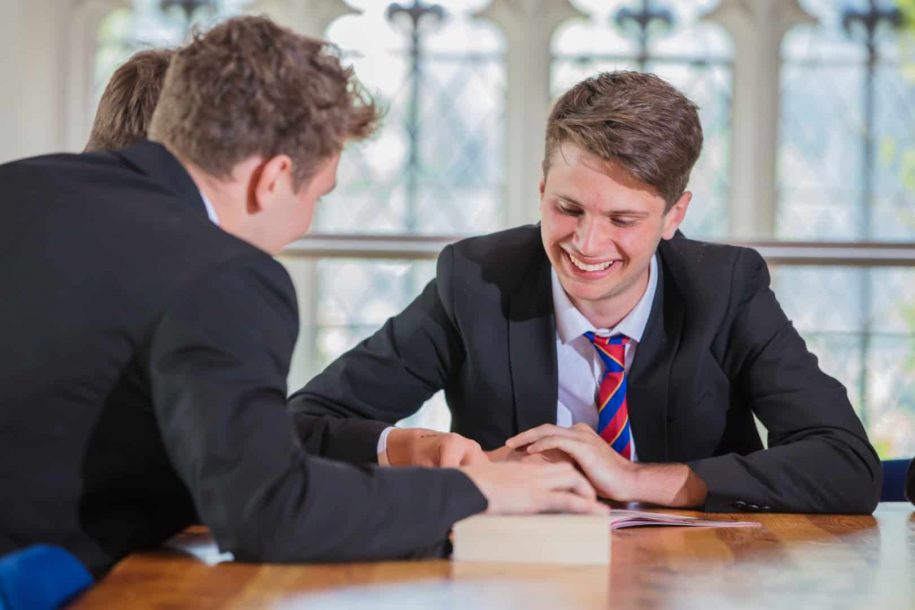Making a statement: boys, beards and tattoos

Cristiano Ronaldo is not one of my sporting heroes. Although one can’t help but admire his skill and dedication, his preening and histrionics do not necessarily make him the ideal role model. Nevertheless, there is one thing I respect about him: he is not afraid to be different. At a time when footballers the world over have glamorised tattoos, Ronaldo decided years ago to ‘forsake the ink’. His reason is apparently that he is a regular blood donor and that having a tattoo would prevent him from giving for several months. I wonder what LGS parents’ views on their son getting a tattoo would be? I wonder how many already have one? Although I have hygiene concerns whenever I pass a dingy-looking tattoo parlour, my worry is more about the effect that a tattoo can have on others’ perceptions, particularly in a professional environment.
I am conscious that my opinions on tattoos are distinctly Twentieth Century. During my childhood, relatively few people had one and I’m sure that I was not alone in assigning negative connotations to them. Having seen them only on burly sailors (I may have been watching Popeye) and Hell’s Angels bikers, I used to associate them with aggression and my instinct was to keep away from an inked adult. I attribute the growing social acceptability of tattoos to professional football in this country. Once the satellite TV millions rolled into the Premier League from the early 1990s, footballers became our style icons, and the lovable down-to-earth nature of the heavily-tattooed David Beckham somehow brought body ink into the mainstream. I no longer associate the tattoo with aggression, not least as I have some friends with small designs that do not usually see the light of day. However, when I see someone with a very obvious tattoo, I am now likely to wonder whether its wearer is impulsive, having not considered how others will respond.
This topic came to mind this week after I read an article on the BBC website about how the world judges those with facial tattoos. This is clearly more extreme. I still feel uneasy around someone with tattoos over their face, because it seems like an aggressive statement rejecting social norms: “I don’t share your values, and I don’t care what anyone thinks of me.” As I’ve written previously, I desperately want young people to have the confidence to express their true selves, but I would never consider it advisable to do so in a way that needlessly antagonises others. I know that, if a prospective teacher turned up to interview at LGS covered in facial ink, I could not imagine employing him/her. I am struggling to articulate why; my instinct is crying out ‘no’! Again, I think it’s the association with impulsivity and risk-taking, that this potential employee is showing an overt weakness in character in having not considered the consequences of decisions. And this runs counter to the school’s ethos when we want teachers to be role models in how they behave.
Like all employers, Loughborough Grammar School has a Code of Conduct for staff, and we do make demands that concern physical appearance. I believe that one’s physical appearance must come across as professional, as it is an outward manifestation of the professionalism that one shows through one’s actions. This is precisely why we insist on appearance rules for older boys that are much more stringent that one would have in a Sixth Form College.
Beards are everywhere these days. Like tattoos, they have become a statement of self-expression for young people. At the Grammar School, we are marking Movember, as we do each year. It is absolutely appropriate that a boys’ school supports an initiative to raise awareness of the cancers that affect men. A donation to the Movember charity buys Sixth Formers a beard licence: the right to wear facial hair throughout the month, and this has been embraced by boys and staff. Boys tend to prefer the full-beard look, while a number of teachers are sporting slightly comical Battle of Britain fighter pilot moustaches.
Due to the school’s support for Movember, there is therefore currently a truce in the daily battle between Sixth Form tutors and boys’ facial hair. Some have petitioned me to relax our expectations. However, I am convinced that there is a correlation between high standards of personal appearance and high standards in school life. I have nothing against beards per se, which can look perfectly smart in experienced hands. However, boys show during Movember that their preference is either for the unkempt look that showcases their abundance of testosterone, or for the ‘I can’t be bothered to shave’ stubble. Not being bothered about one’s appearance is not positive in the long-term. If this is an acceptable attitude, would the same boy be bothered about the quality of his academic work?
The beard is mercifully temporary, and I would encourage Sixth Formers to experiment during the school holidays as long as they return to term clean-shaven. A tattoo, however, is for life, not just for Christmas. Please explore your son’s attitudes towards them when you get the chance, and in particular, talk through society’s varying views, so that when temptation presents itself at some point in the future, they will think before they ink.
